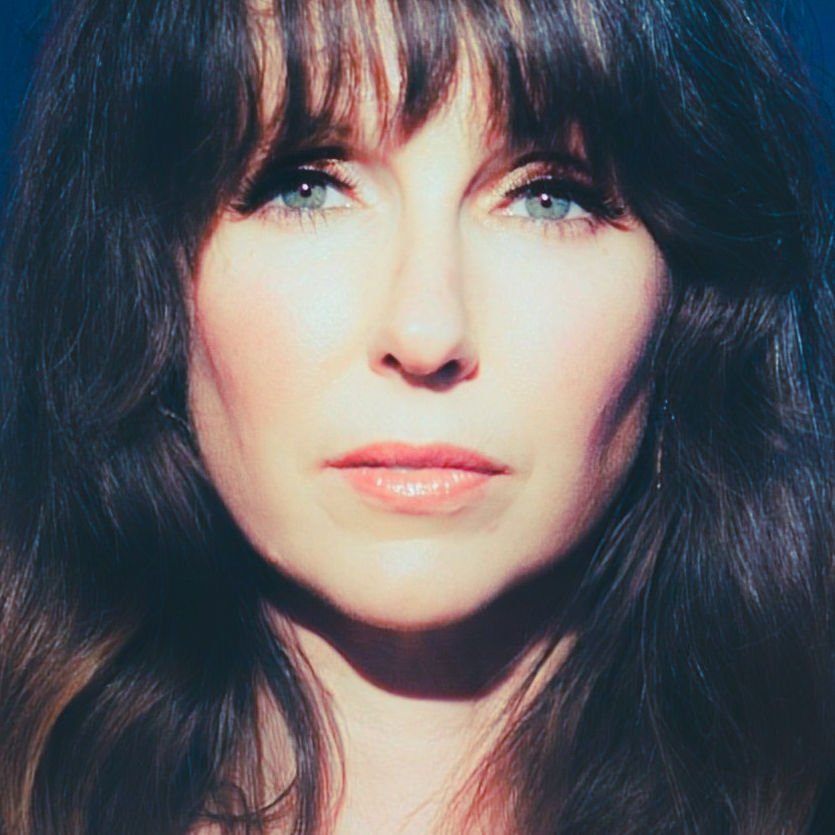WEBSITE | FACEBOOK | INSTAGRAM | YOUTUBE | SPOTIFY
Wild Heart Club is singer, songwriter, and multi-instrumentalist Kristen Castro, a genre-crossing artist known for blending a surprising range of electronic, digital, and analog elements into her dreamy, atmospheric indie-pop. Castro built a name for herself as an independent solo artist with a penchant for electric guitar, a dark sensibility, and a bracing tenderness reminiscent of acts like the Cocteau Twins.
Transforming abstract emotion into compelling music, her early releases feature everything from mandolin to bass, piano to synth, banjo to drum programming, in songs that feel both effortless and complex at the same time. Castro’s latest project, Wild Heart Club, builds off the hybrid style of her solo work, evolving her eclectic foundations into an even more distinct and cohesive sound. The synth-heavy, guitar-driven soundscapes are laced with Castro’s breezy, candied vocals: think Sigur Rós meets Heart. It’s a strange and compelling combination that feels right for the current moment.
“I’ve always been drawn to people who aren’t in the cool club—the weirdos embracing their weirdness. This is music for them, as always.” Written, recorded, and produced primarily by Castro herself, Wild Heart Club’s debut album Arcade Back in Manitou is set for release this fall.
Castro has been creating songs that challenge genre boundaries since the age of ten, combining elements of folk, pop, electronica, hard rock, country, Americana, and punk into her own idiosyncratic sound. She grew up influenced by her brother’s taste in hip-hop and R&B, excited by the way 90s artists often experimented with uncommon methods and strange sounds to make their beats more unique. Her early background playing in metal bands sparked a deep appreciation for powerful rhythms and driving guitar riffs that still inform her music today. Mentored by Matt Bissonette (bassist for Elton John, Ringo Starr) and Sergio Gonzalez (drummer for Jennifer Lopez, Gavin DeGraw), she spent six years touring the country as a founding member and primary instrumentalist for popular indie-country trio Maybe April, and appearing in major publications like Billboard, Paste Magazine, and CMT. In 2019 Castro released a series of well-received solo singles, “Bloom” and “Surrender” (which was praised by Audiofemme for “crystalline and breathy” vocals reminiscent of Dolores O’Riordan and Leigh Nash).
Castro started writing the songs that would become Arcade Back in Manitou in January 2020, while living with her brother in L.A. and recovering from heartache after a particularly difficult breakup. She was also navigating the breakup of her band and listening to Fleetwood Mac’s Gypsy on repeat. Castro was staying with her sister in Portland when the pandemic lockdown began in March 2020, and there she developed the concept for Wild Heart Club, tweaking the details for her new project’s debut album.
Named for a happy memory (visiting a Colorado penny arcade with an ex), Arcade Back in Manitou is an ethereal and lush collection of melancholy songs with a brilliant gloss of retro sheen. “For me, writing this album was about putting myself in a place of loss, and really feeling it. I wanted to be honest. A lot of the lyrics are self-talk, like yo this is the darkest moment you’ll feel in a while, and you need to get to the other side of it. When we’re miserable, how can we still find joy?” The resulting music feels unexpectedly bright, like walking through a clean, sunlit, white-tiled mall in the glowy light of a sitcom flashback. The opening chords of the track “Unhappy” are anything but unhappy: Castro discovered the beaming, slightly unnatural guitar sound while experimenting with octave and rotary pedals. Throughout the album, there’s a genuine and hopeful engagement with the positive, a buoyant, almost-ironic sense of cheer teeming from the instrumentation, and a spirit of experimentation and discovery, despite the themes of loss the lyrics explore.
Hints of 80s plastic-pop and elements of 90s alternative cool (the Cranberries hit “Zombie” was a big influence) are nestled in the mix, as well as nods to vintage and modern Swedish pop acts like Robyn, Léon, and ABBA. “I want to be the artist who can make you cry on the dance floor. I like songs that pair darker thoughts with happy vibes. Emotions are complex. It feels right to have that kind of complicated juxtaposition play out in music,” she says. “It feels honest.”






